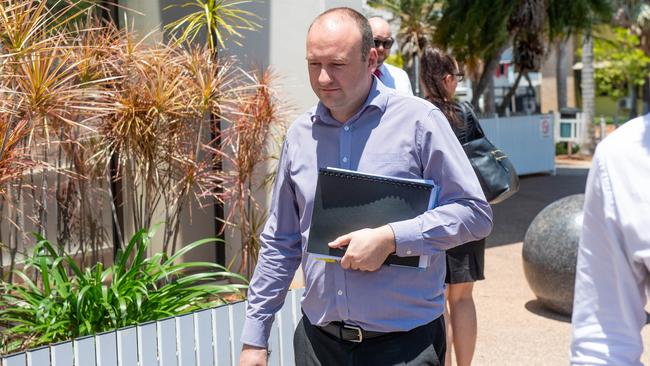Health Department’s ‘indifference’ may have caused children’s deaths: petrol sniffing Inquest
THE ‘outrageous’ failings and ‘indifference’ of the NT Health Department may have caused the deaths of three children in remote Aboriginal communities, an inquest has heard

Northern Territory
Don't miss out on the headlines from Northern Territory. Followed categories will be added to My News.
- Mental health boss didn’t understand legislation relating to managing petrol sniffing cases, inquest hears
- Heggie takes ‘personal responsibility’ for deaths of three kids, inquest hears
THE “outrageous” failings and “indifference” of the NT Health Department may have caused the deaths of three children in remote Aboriginal communities, an inquest has heard.
A joint Coronial inquiry into the deaths of Miss B, 17, Master W, 12 and Master JK, 13 who each died after a long history of petrol sniffing, concluded on Monday.
In his final address, counsel assisting Kelvin Currie said department staff had ignored critical findings from a previous inquest in 2017 by continuing to flout their legal requirements.
Mr Currie said the earlier inquiry found department workers had failed to prepare a report for the Chief Health Officer with treatment options as required by law.
MORE NT COURT NEWS
Accused man should be acquitted after admitting being penetrated by a cucumber, court told
Kakadu sacred site battle over Parks Australia walking track lands in court for the first time
Fatal crash mum to spend 12 months in jail after death of 7-year-old son
In the case of Master JK, he said they again failed to do so “at any point” in the two years the department “case managed” him prior to his death last year.
“That is not a ‘technicality’,” he said.
“In essence, he was deprived of everything the (Volatile Substance Abuse Prevention) Act sought to provide to him so as to mitigate the risks of severe harm from the activity in which he was engaged.”
Mr Currie said it was “difficult to escape the view” that the findings of the previous inquest “had absolutely no influence on the way the department acted” and it “did not recognise its failures”.
“The difference between the representations of the department and reality are considerable,” he said.
“’Outrageous’ as a description doesn’t do the circumstances justice”.
Mr Currie said nothing had changed in the three years since the earlier inquest and the lack of leadership and supervision it identified had “obviously continued”.
“There is absolutely no evidence of any change to practice,” he said.
“There is a real possibility that the indifference of the service resulted in the deaths of these three children.”
In closing, Mr Currie said “it would be of no use to make the same recommendations that did not work on the last occasion”.
“There is nothing in the information from the Top End Health Service to suggest they accept the issues or have plans to correct them,” he said.
In reflecting on a similar petrol sniffing inquest from 2005, Coroner Greg Cavanagh said his was a reactive rather than a proactive jurisdiction.
LIMITED TIME: New NT News subscription offer: $1 a week for the first 12 weeks
“I can’t enforce my recommendations, I can’t make agencies and governments react to my comments,” he said.
“All I can do is expose the reality, expose the truth, make some suggestions and recommendations and hope and trust that they’re sensible enough that governments and the community do something.”
Mr Cavanagh will hand down his findings at a later date.
Originally published as Health Department’s ‘indifference’ may have caused children’s deaths: petrol sniffing Inquest

